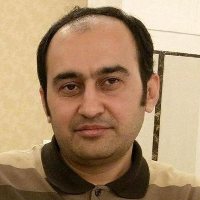Study of Youth Religiosity and its Effect on their Electoral Behaviors
Religiosity has had important political effects as one of the most important features of Iranian identity. These effects based on contemporary and historical developments, indicate clearly the dynamic and creative nature of this identity in the social construction of political realities in Iran. The present study applies Hunter (1991; 2006) and Wuthnow’s (1988) theory of cultural wars to investigate the impact of religiosity on electoral behaviors in terms of voting tendency and participation in elections. The statistical population of the study consists of young people aged 22-40 who have participated in at least three general elections. From this statistical population, 377 people were selected by multi-stage cluster sampling as the statistical sample of the research. Linear regression and logistics were used to analyze the data. The results show that the Degree of religiosity of youth has a significant effect on their electoral behaviors in terms of voting Tendency and participation in elections. So that, the youth who had a high average religiosity tended to the fundamentalists and participate more in elections. Whereas, young people with low average religiosity tended to be reformists and were less likely to participate in elections This study contributes to Hunter (1991; 2006) and Wuthnow’s (1988) theory of cultural wars by testing it in a unique political context and therefore contextualizes the theory.
-
Analysis of the Academics' Participation in Arbaeen walking Pilgrimage and Policy Suggestions to Improve It
Mohammadreza Pouyafar *, Mina Salehi
Journal Strategic Studies of Public Policy, -
Types of Religiosity of Female Students in Tehran
Zahra Soleimani Alavije, Mohamadreza Pouyafar *, Khadijeh Zolghadr
Journal of Islam and Social Sciences, -
A Sociological Study of Youth Religiosity and its effect on Their Electoral Behaviors
, Mohammad Reza Akhzarian Kashani *,
Iranian Journal of Political Sociology, -
A Sociological Study of Youth Religiosity and its effect on Their Voting Tendency
, MohammadReza Akhzarian Kashani *, MohammadReza Poyafar
Sociological Studies of Youth Journal, Summer 2022




